[ad_1]
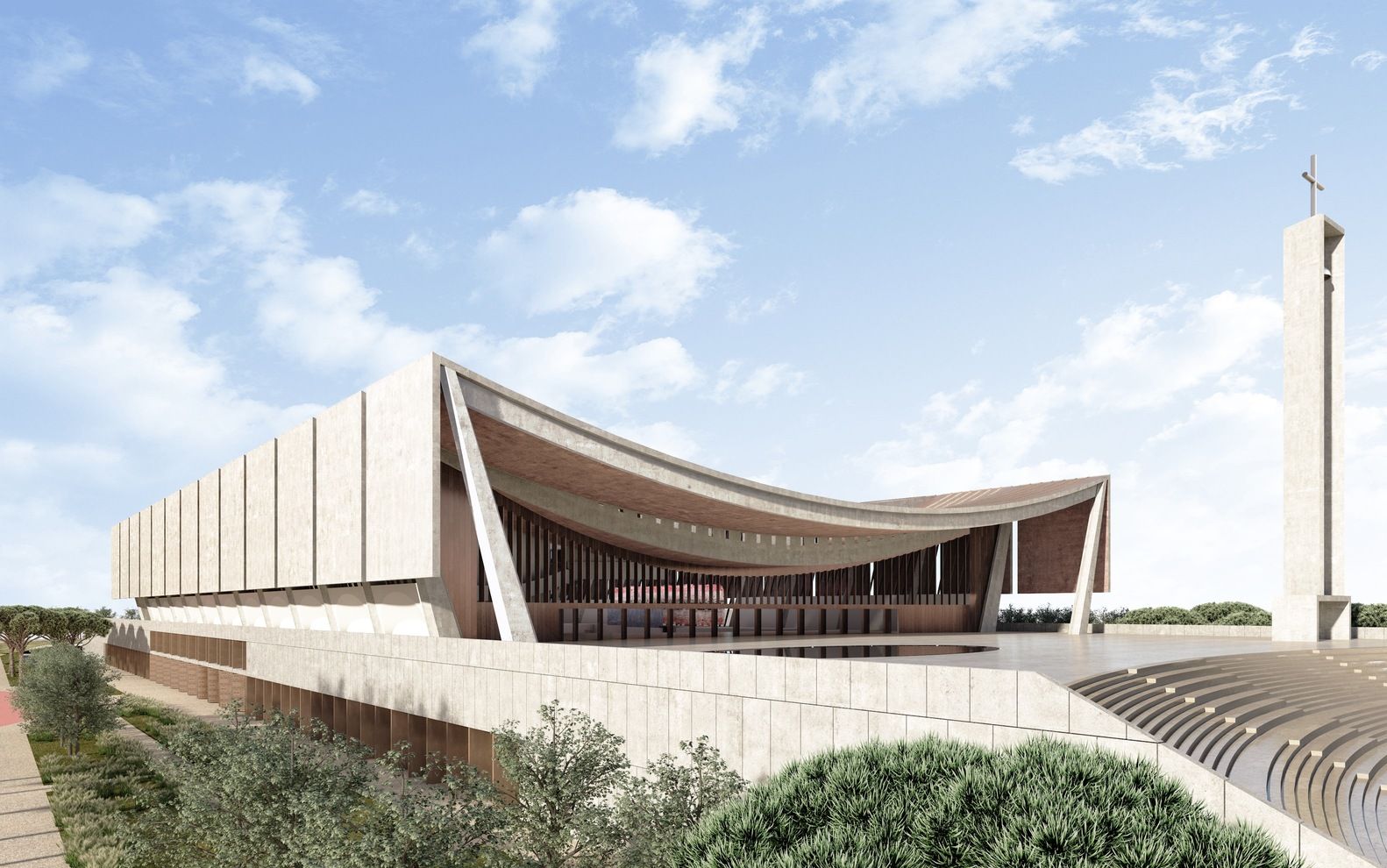
Thanks to the growing economies and population of Africa, the needs of the continent’s built environment are offering architects a unique opportunity to influence how the cities of the future look and feel. Here are some examples of a new wave of inspiring African architects and architecture.
Seth Onyango, bird story agency
***
When Diébédo Francis Kéré was handed the Pritzker Prize on May 27, the moment was of far more significance than an African-born architect winning the world’s most prestigious architecture prize for the first time. It was also recognition of the growing influence of the design principles evident in Kere’s work—principles he shares with a growing number of architects and architectural practises across the continent.
“At the intersection of utopia and pragmatism we create contemporary architecture that feeds the imagination with an afro-futurist vision,” is how Kéré’s practices, Kéréarchitects, describe themselves.

Kéré’s work embodies a deep appreciation of local environmental and social conditions and represents the adaptation and application of 21st-century engineering and technological advances to those conditions. Whether that’s in his termite-mound-inspired design for a college in Kenya, his wood-and-concrete design for a school in Burkina Faso, or Kunle Adeyemi’s floating structures, African architects are making waves by bringing an appreciation of local materials, construction techniques, and design to their buildings. This is not only inspiring other young African architects but also giving Africa its own design “moment”.
Here are some of the projects, past, present and future, that are placing African architects and architecture in the spotlight:
- National Cathedral of Ghana –– Sir David Adjaye, OBE (Adjaye Associates)
Construction has commenced for this state-of-the-art religious edifice, nestled adjacent to Osu Cemetery in Accra, Ghana. According to Adjaye Associates, the concept establishes a unique, 21st-century landmark where religion, democracy, and local tradition are seamlessly and symbolically intertwined. It will house a series of impressive chapels; a baptistery; a 5000-seat two-level auditorium; a grand central hall; a music school; choir rehearsal; an art gallery; a shop; and multi-use spaces. It will also be home to Africa’s first Bible Museum and Documentation Centre, dedicated to Christianity and nation-building in Ghana. Obe is a Ghanaian-British architect who was knighted in 2017. He is known for putting his artistic sensibilities and values into projects that help the community.
- Benin National Assembly –– Diébédo Francis Kéré (Kéréarchitecture)
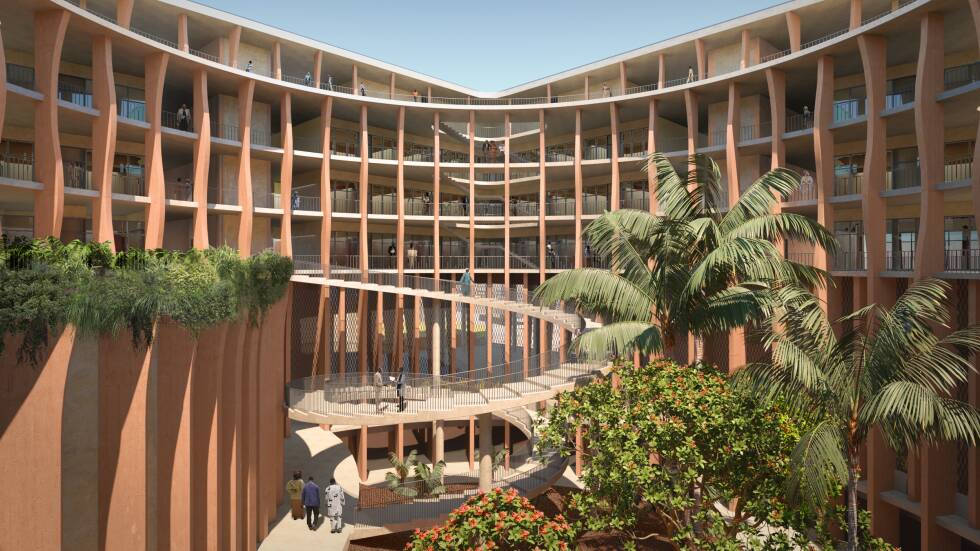
Assembly hall of Benin National Assembly. Render by Kéré Architecture.
Burkina Faso-born architect Diebedo Francis Kéré, the 2022 Pritzker Architecture Prize winner, has designed the yet-to-be-built national assembly of Benin. The project takes inspiration from the palaver tree and the age-old West African tradition of meeting under a tree to make consensual decisions in the interest of a community. It will showcase Benin’s native flora while providing Porto-Novo with extensive recreational space.
- Bët-bi Senegal–– Mariam Kamara (Atelier Masomi)
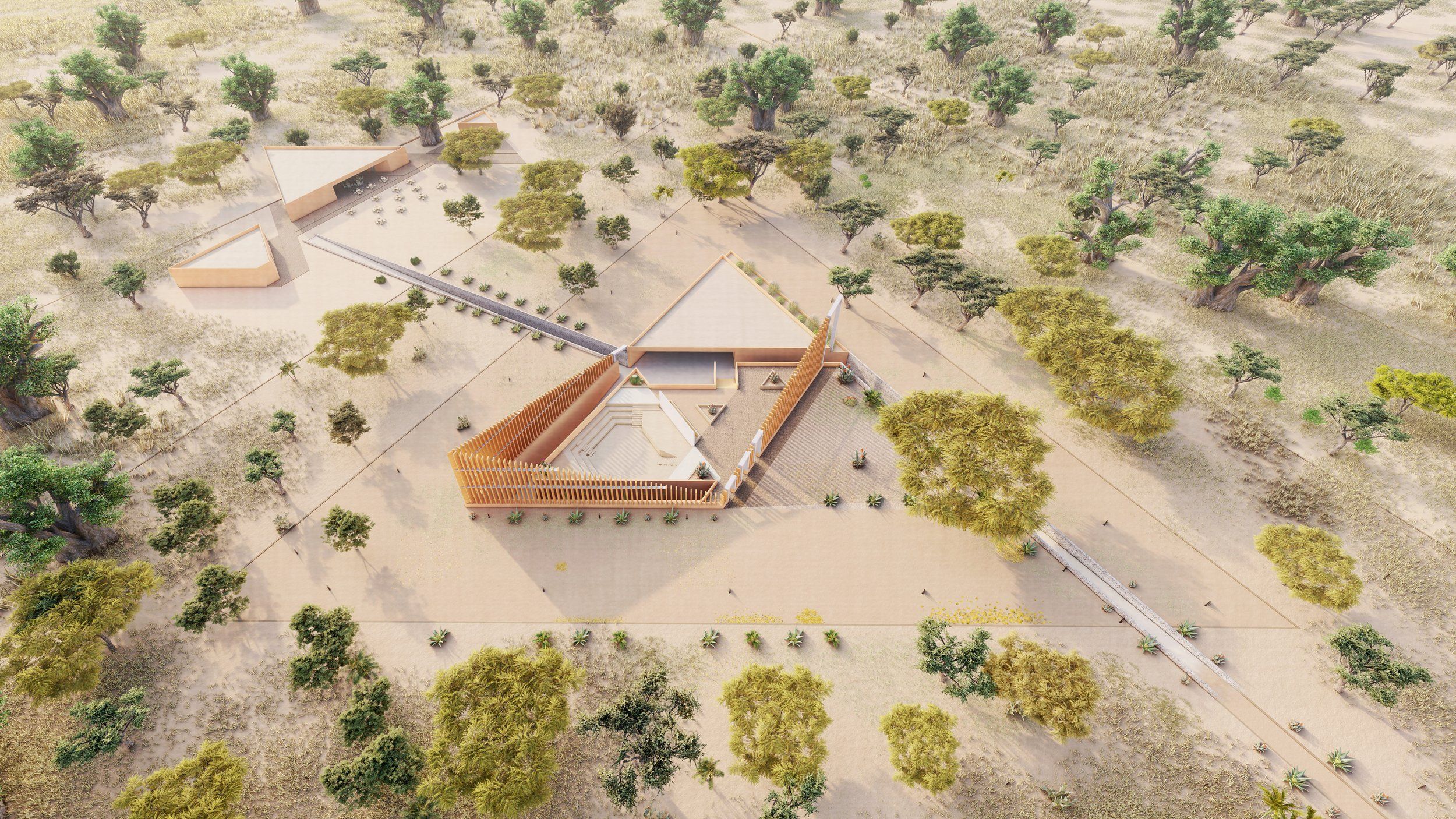
Set to launch in Senegal in 2025, the Bët-bi museum will house some of Africa’s most important contemporary and historic art and cultural relics. Bët-bi which means “the eye” in Wolof, will be constructed on a site in the Senegambia region of West Africa known for its ancient stone megaliths and which includes four UNESCO World Heritage sites.
- Le Memorial des Martyrs, Niamey, Niger –– Sir David Adjaye OBE (Adjaye Associates)

Le Memorial des Martyrs, Niamey, Niger –– Sir David Adjaye OBE (Adjaye Associates) Photo credit- Adjaye Associates
The Martyrs’ Memorial will be built in the centre of Niamey on a raised triangular plot bordered by tree groves; concrete pillars representing the dead rise 20 metres from the platform and root themselves in a labyrinth underneath where visitors can find shelter from the heat.
- Niamey Cultural Center, Niamey, Niger –– Mariam Kamara (Atelier Masomi)
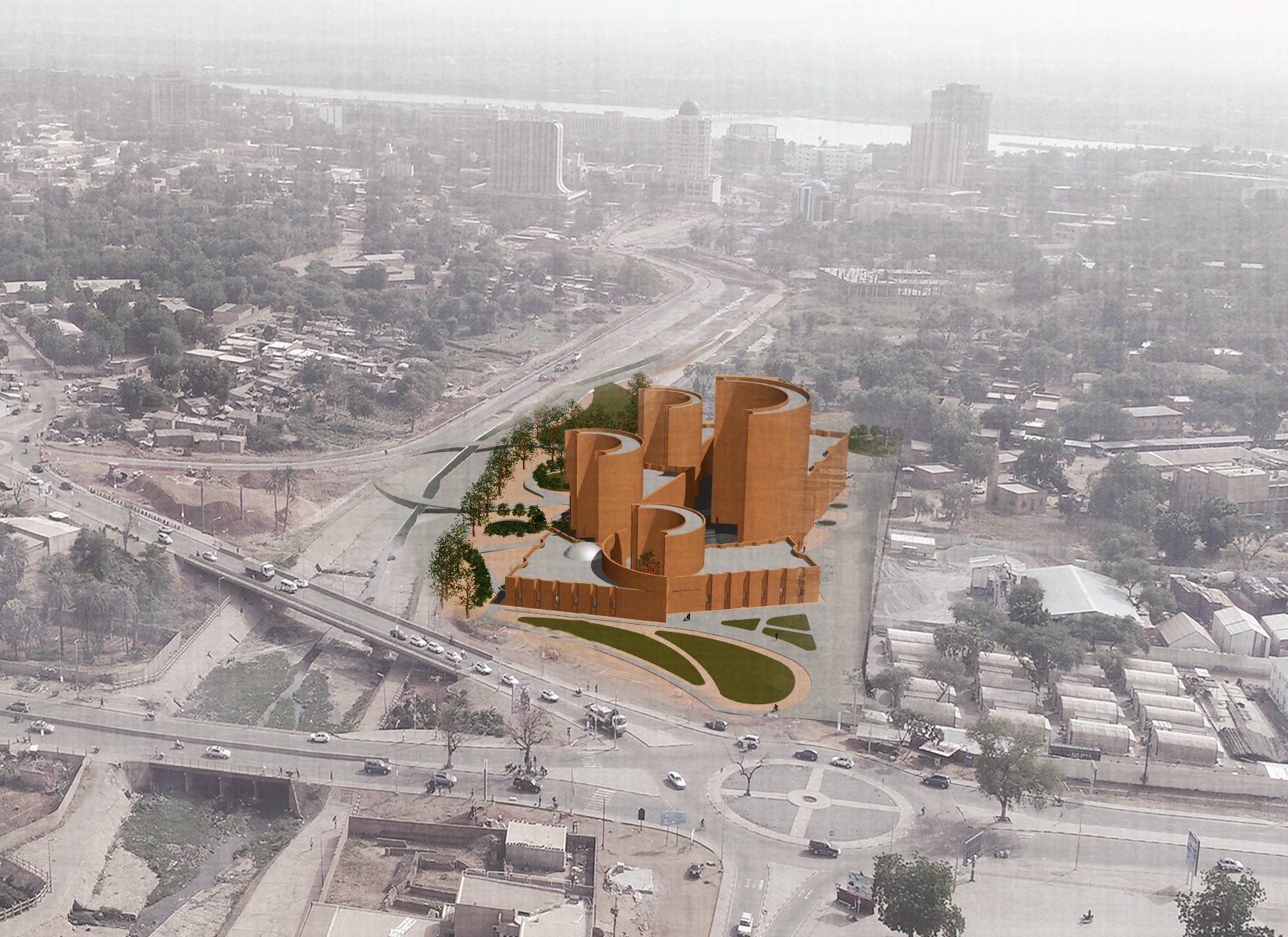
According to architects Atelier Masomi, the Niamey Cultural Center in the Gounti Yenna Valley aims to meet cultural needs not otherwise fulfilled by Niger’s capital. Lead architect Mariam Kamara developed the centre under the mentorship of David Adjaye and drew on traditional Hausa and Songhai architecture for its monolithic form.
- Thabo Mbeki Presidential Library — Sir David Adjaye OBE (Adjaye Associates)
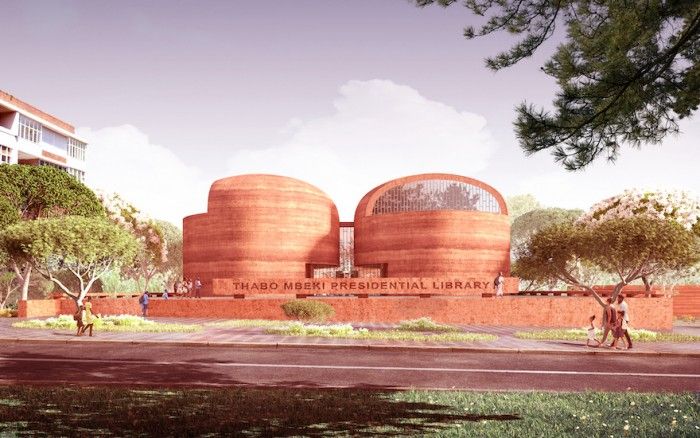
“The architecture of the Library taps into the collective memory of the continent through the establishment of a new historical centre for African consciousness in which knowledge, education, and sustenance are nurtured in the representation and intelligence of the continent,” said Adjaye. Located in Johannesburg, the Thabo Mbeki Presidential Library will be “a space of excellence, learning, research, discourse, and cultural exchange predicated on the African perspective”.
- Coral Pavilion beach house –– Tosin Oshinowo (cmDesign Atelier)
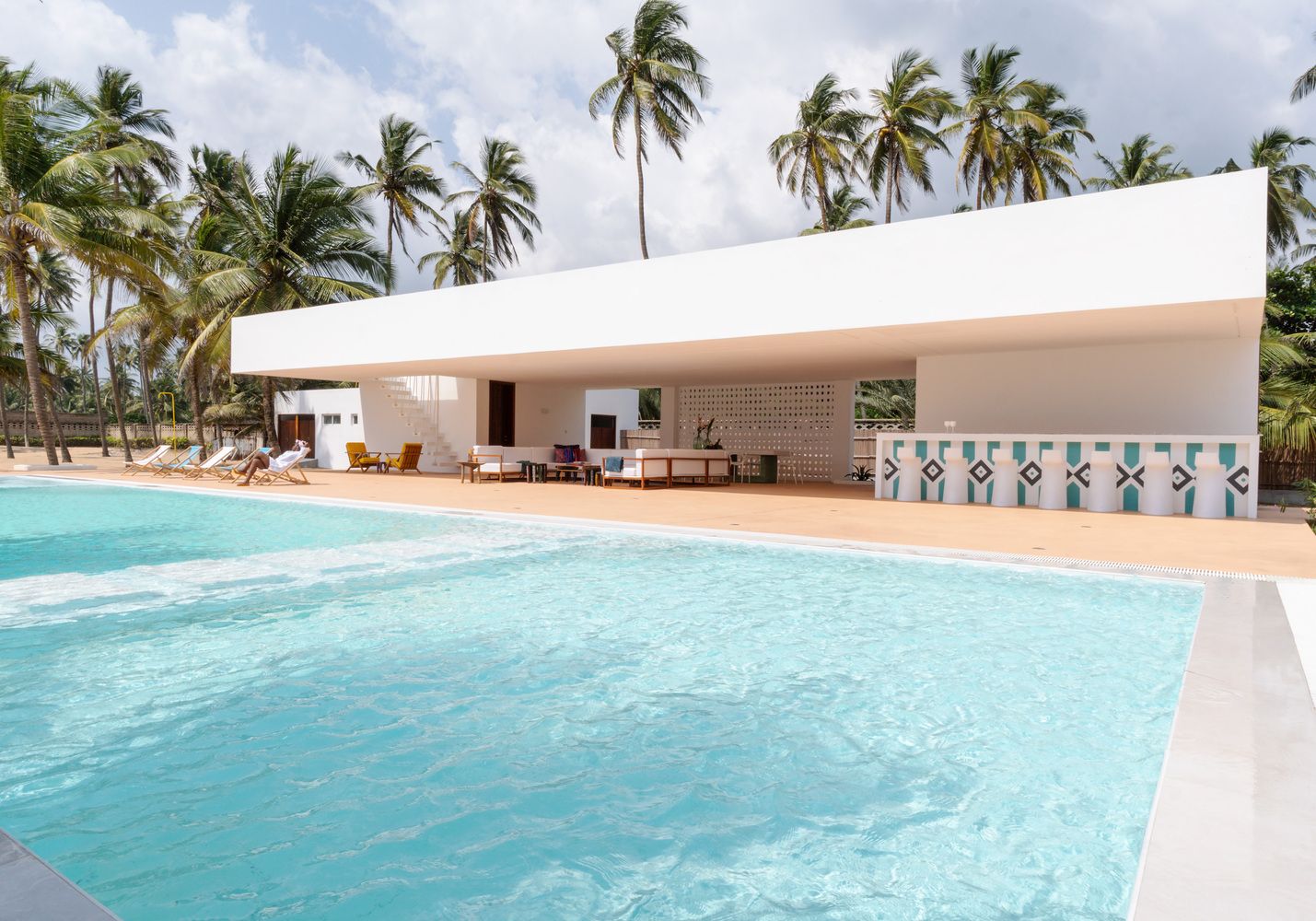
According to Arch Daily, this minimalist Lagos beach pavilion was designed to have a fully indoor/outdoor feel, with the comfort of a living room in a space that is largely open with dramatic views and cooling airflow, creating a blend of modern and sustainable living.
- Floating Music Hub, São Vincente, Cape Verde –– Kunlé Adeyemi (NLÉ)
Opened in 2021 in Mindelo, São Vicente, the Floating Music Hub blends with the island’s vibrant musical and cultural scenes. It is made up of three prefabricated floating hubs, consisting of a multi-purpose performance hall, a professional recording studio, and a service bar. The three vessels are anchored on a triangular floating public plaza.
- Taroudant University — Saad El Kabbaj + Driss Kettani + Mohamed Amine Siana
According to the architects, Taroudant’s architectural style, full of history, is an expression of the deep Moroccan South. The Polydisciplinar Faculty of Taroudant is an attempt to reinterpret that heritage through a building that carries a vision for the future. “This project, therefore, draws its inspiration from the land and its manifestations to the senses,” their description reads.
- Bosjes Chapel, Bosjes Farm in the Witzenberg district, South Africa — Coetzee Steyn (Steyn Studio and TV3 Architects)
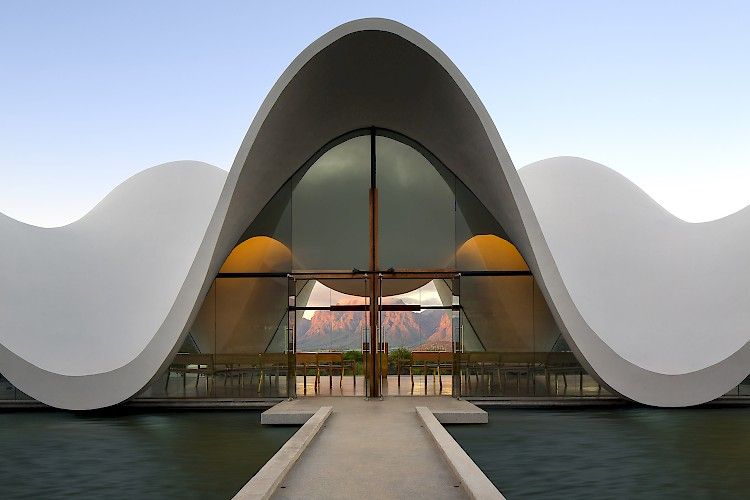
“Its serene sculptural form emulates the silhouette of surrounding mountain ranges, paying tribute to the historic Cape Dutch gables dotting the rural landscapes of the Western Cape,” said Steyn Studio, which is led by South-African-born Coetzee Steyn. Dezeen magazine says that functions are hidden in the building’s base so that the space doesn’t have any extra things that might get in the way of the views.
[ad_2]
Source link
